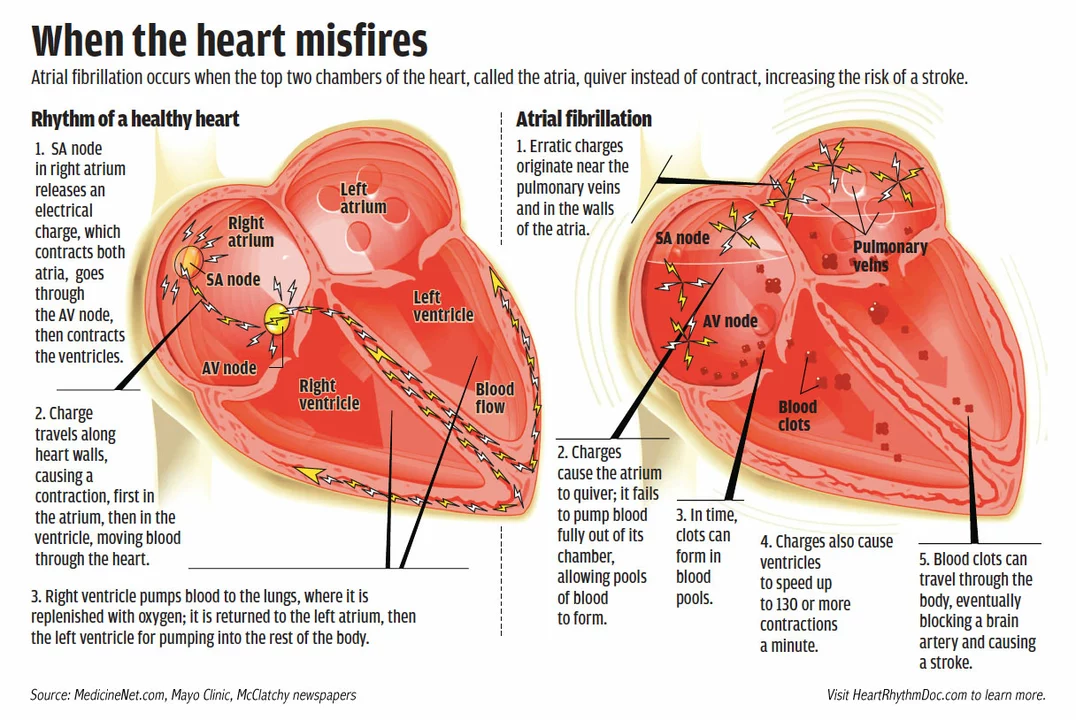Triggers: What Makes Medications or Conditions Flare Up — and How to Stop It
Most people think side effects just happen randomly. They don't. Many times a clear trigger fuels a bad reaction, a flare-up, or a drug interaction. Knowing common triggers gives you a real chance to prevent problems.
First, what we mean by triggers. Triggers are things that change how your body reacts to a medicine or how a condition behaves. That includes other drugs, supplements, foods, alcohol, infections, stress, hormones, and missed doses. Some triggers are obvious — like taking an extra dose of a stimulant — and some are subtle, like an over-the-counter herb that affects liver enzymes.
Start by tracking. Keep a simple diary for two weeks: record every medication, supplement, major meal, alcohol use, sleep quality, and any new symptoms. Patterns appear fast. If a rash, headache, or mood swing pops up after a certain food or new pill, that’s your clue.
Watch for common medication triggers: - Drug interactions: Combining medicines can raise or lower blood levels. That can make side effects worse or make a drug useless. - Enzyme inhibitors/inducers: Some drugs and supplements change how your liver breaks down medicines. Grapefruit juice is a famous example. - Alcohol and recreational drugs: These can worsen side effects like sedation, liver damage, or dangerous heart effects. - Supplements and herbals: St. John’s Wort, for example, can reduce the effect of many prescriptions. - Dosing mistakes: Missing doses, doubling up, or abrupt stops often cause withdrawal or flare-ups.
When to get medical help
If a reaction includes breathing trouble, swelling of the face or throat, chest pain, fainting, or a severe rash, seek emergency care. For new but mild symptoms — dizziness, persistent nausea, or mood shifts — call your prescriber or pharmacist for advice. Don’t ignore gradual changes like weight shifts or sleep loss; they often point to a drug effect building up.
Practical habits to avoid triggers
Make a medicine list and share it with every provider. Check supplements with your pharmacist before you start them. Avoid alcohol while starting new meds that list drowsiness or liver risk. Ask about food warnings — some meds need an empty stomach, others work best with a meal. If you buy meds online, use only reputable pharmacies and keep copies of prescriptions and lab tests.
Identifying triggers cuts down surprises. You don't need to be an expert — just curious and organized. A little tracking, a quick chat with your pharmacist, and smart buying choices can keep you safer and make treatments work better.
Common real-life triggers I see: antibiotics that clash with birth control, OTC pain meds that raise blood pressure when taken with certain antidepressants, and herbal teas that alter warfarin levels. When starting a new drug, ask: 'Will this change my other meds or labs?' Small questions now prevent big problems later. Keep copies of lab results handy.

- 9 Comments
As a blogger, I've come to learn that heart rhythm disorders can be quite concerning and disruptive to our daily lives. It's important to know that triggers for these disorders can include stress, excessive caffeine intake, and even certain medications. To avoid these triggers, we should focus on reducing stress through relaxation techniques, limiting our caffeine consumption, and consulting with our doctors about any medications we take. By being mindful of these potential triggers, we can take steps towards maintaining a healthy heart rhythm and overall well-being. Remember, a healthy lifestyle is key to a healthy heart!
